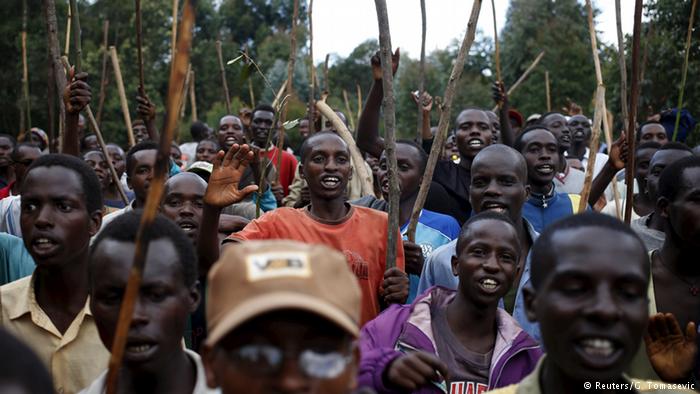Burundi to quit UNHRC
September 22, 2018 | Expert Insights

Burundi has threatened to quit the United Nations Human Rights Council over perceived politicisation following a report pointing to crimes against humanity in the country.
The country has also sued its commissioners who authored a report.
Background
For more than 200 years, Burundi was an independent kingdom. In the beginning of the 20th century, Germany colonized the region. It was under German rule until the end of World War I when Germany was defeated. The region was conceded to Belgium. Germans and Belgians ruled Burundi and Rwanda as a European colony known as Ruanda-Urundi.
The Burundian Civil War was an armed conflict from 1993 to 2006. The civil war was due to ethnic divisions between the Hutu and the Tutsi ethnic groups. In 1993, the country held its first multi-party elections. It sparked off violence that lasted for over a decade. The estimated death toll stands at 300,000 killed.
Analysis
Burundi has threatened to withdraw from the United Nations Human Rights Council. This was in response to a 272-page report published by the UN Commission of Inquiry indicting the government for committing crimes against humanity.
Burundi has refused to cooperate with the 3 members of the UN Commission of Inquiry and has declared them to be ‘personae non-gratae’. The Burundian Ambassador Renovat Tabu told the Council that the report was “full of lies” and “politically motivated”. He also said that it had “no regards for states, peoples and leaders.”
The UN body had elected to send 3 experts to the country in March 2017 to "work in cooperation" with the government and bring to justice human rights abusers. However, the government did not cooperated with the experts and their visas were cancelled. Deputy Human Rights Commissioner Kate Gilmore told the Council that “It is a matter of concern that through its lack of cooperation Burundi has prevented implementation of this Council’s resolution and the mandated work of the group of experts.”
In defence, Ambassador Tabu voiced out that the departure of the UN 3-member team had been ‘spun to cast his government in a bad light.’ He said that “Burundi regrets… the way in which events have been twisted in order to imply there has not been full cooperation.”
The international community has criticized Burundi for violating human rights in the past. Many note that the violence is related to President, Pierre Nkurunziza, making the decision to pursue a third term. Estimates differ on the lives lost due to the violence, but it ranges between 500 and 2,000. Additionally, nearly 40,000 Burundians have fled the country.
Human rights violations and abusive tactics by state and ruling party agents have escalated since a failed coup d’état in May 2015. Since then, state security services and members of the Imbonerakure have intimidated, arrested, tortured, raped and killed members of political opposition parties.
In October 2017, Burundi announced its intention to leave the International Criminal Court. This is the first nation to withdraw from the body in 15 years.
Burundi government has accused the ICC of being a political weapon used by Western nations to continue oppression. Presidential office spokesperson Willy Nyamitwe blamed the accusations in the report on Belgium, and the European Union, which he said wanted to destabilise the country. He also accused Rwanda of arming and recruiting Burundian refugees to try to overthrow the government in 2015.
Counterpoint
Burundi is not the first country to have threatened to leave UNHRC due to accusations of politicisation and partiality.
In June 2018, Ambassador Nikki Haley announced that the United States will withdraw from the UNHRC, accusing the members of bias against Israel and calling the council "a hypocritical and self-serving organization that makes a mockery of human rights."
In June 2016, the President of the Philippines, Rodrigo Duterte also threatened to leave due to criticisms over extrajudicial killings in the Philippine Drug War. He threatened to withdraw the Philippines from the United Nations.
Assessment
Our assessment is that the government is complicit in the various crimes perpetuated on those who opposed the third term Nkurunziza’s. We believe that many lives have been lost and thousands have fled the country. We feel that though the present crisis is political in its origin, there is serious concern that it could revive the 12-year internal conflict between 1993 and 2005, during which an estimated 300,000 people were killed as Hutus rebelled against the Tutsi dominated armed forces.








Comments